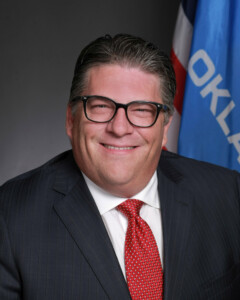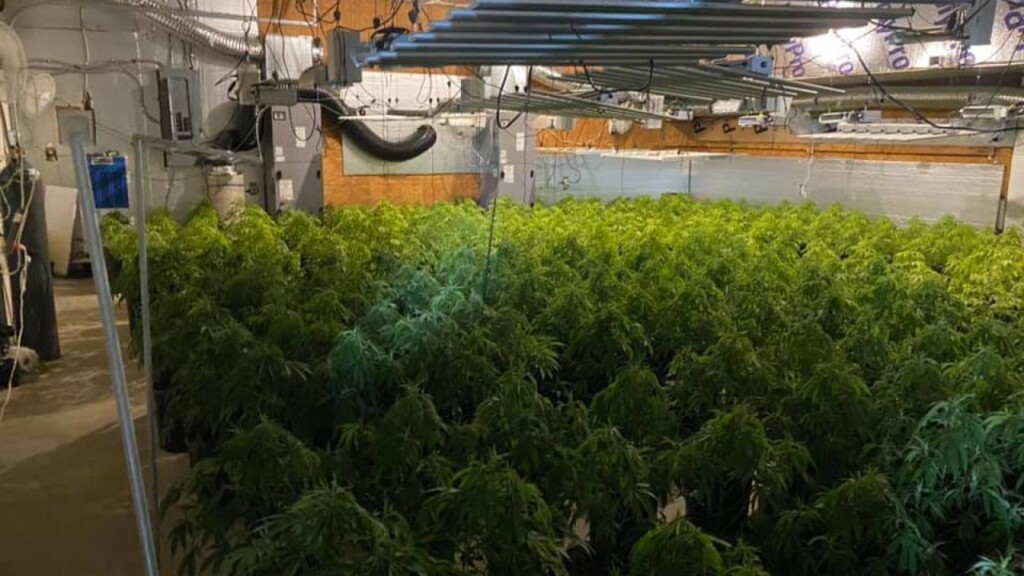State Question 788 passed on June 20, 2018, making Oklahoma the 30th state to legalize medical marijuana. The legal journey didn’t stop there. As citizens cast their votes, they passed the responsibility back to OK lawmakers, who would have to figure out how to launch and regulate a brand-new industry.
Since that day, there has been one name that stands out within the Oklahoma legislature when it comes to medical marijuana: State Representative Scott Fetgatter.
He’s not a career politician but instead got his start in Rock and Roll bands and the music industry. He’s neither prominently for nor against cannabis, but he’s been at the center of a growing number of marijuana bills. Overall, he seems to have taken a remarkably common-sense approach to the industry.
Who is Scott Fetgatter and why has he been called the “Godfather of Marijuana”? We had to meet him to find out.
Stepping up to regulate marijuana in Oklahoma
Rep. Fetgatter’s preferred meeting place wasn’t a government conference room or fancy office. At 9 a.m. on a Monday morning, we rolled in to meet him at a local Okmulgee diner over coffee and pancakes.
Throughout the meeting, many patrons stopped by to say hello to their local hero. A few even brought their own reports of suspicious marijuana growing activity.
Our curiosity was piqued. Who is this guy, and what is he all about?

Oklahoma State Representative Scott Fetgatter, the “Godfather of Marijuana”
“I was originally opposed to marijuana altogether,” Fetgatter shared. “I grew up playing in hair bands, and I started watching family members and friends who were abusing it…and next thing you know band members don’t show up at practice.”
Fetgatter explained that as State Question 788 came up, he had to put his personal feelings aside to find out what exactly was going on with medical marijuana. As he went deeper, he discovered more and more complex issues and unanswered questions.
“I found out that nobody in the legislature was interested in working on it other than Jon Echols, and he was too busy. Nobody else was going to do it, so I just said, ‘I’ll do it. I’ll work on marijuana.’”
Regulating a brand new marijuana industry
After SQ 788 passed, Rep. Fetgatter continued to learn and engage with the growing industry.
“I completely flipped my thoughts. I still don’t use, but I see the medicinal value,” he explained. “Is it safer than alcohol? I don’t know. All I know is that it’s not any worse.”
He stressed that, “the activism is over. The market has got to mature. It’s got to turn into a viable industry…I know full well people have been buying it on the black market for years, but now that it’s a legal medicine, my job is to make sure people are safe.”
Since SQ 788, he has remained at the center of marijuana legislation, including House Bill 2612 and Senate Bill 1033.
Standing up for no-nonsense marijuana legislation
Fetgatter explained that he keeps three questions in mind whenever he’s working on marijuana legislation:
- How does it make it safer for patients?
- How does it support (and not strangle) local businesses?
- How does it help destroy the black market?
Overall, he’s taken a remarkably no-nonsense, common-sense approach to the industry. He’s promoted legislation that helps protect patients, but he’s also blocked legislation that needlessly hinders local marijuana businesses.
“Anything you can do to hurt the marijuana industry, you can pass through the senate right now,” he explains, sharing stories about how lawmakers and lobbyists have tried to pass needlessly stringent rules like requiring pre-packaged products instead of deli-style dispensary counters. Such measures wouldn’t only make it harder on the industry, not make things dramatically safer for patients.
When it comes to regulation, Fetgatter supports anything that protects patients, but he also wants to make sure it makes sense for MMJ businesses.
“OMMA and OMEA went through the proper programs, they put out the request for proposals, and Metrc came up with the best proposal…But because they put the burden on the backs of all the businesses and said you can’t buy from anybody else, that’s what I have a problem with.”
“People think seed to sale is going to solve all our problems. Well, that RFID tag doesn’t know if that plant weighs a pound or five pounds. Metrc is in Colorado and California, but can you explain why I have black-market marijuana from Colorado and California coming into Oklahoma?”
For Fetgatter, much of the solution relies on enforcement.
Defending against black market trade
As we sat down to breakfast in small-town Okmulgee, it became increasingly clear that there are two very different sides to the marijuana conversation. Fetgatter deals with both.
In larger cities like Tulsa, the population is largely pro-marijuana. They care about patient safety and protecting local businesses from unnecessary taxes and regulations that will ultimately drive prices up.
In more rural areas, the conversation focuses more on the rampant problem of out-of-state black market trade and illegal grow operations.
“Just last Friday, I had someone call me up and say, ‘you want to catch someone? They just pulled up in a UHaul van, honked the horn, 20 people ran out the door, loaded the van, and they’re gone’…I called the police chief who tailed them on backroads all the way to Seminole.”
Just in the short time we were meeting, two other diner patrons stopped by to say hello and report suspicious activity of their own. Another commercial real estate agent told us about how land prices are going through the roof as foreign investors and suspicious characters are showing up to buy land with cold hard cash.
“The senate is worried about people smoking marijuana on park benches. I’m worried about this… cartel members with multimillion-dollar operations, People who show up to buy property with brown paper bags full of cash.”
Currently, Oklahoma has only 25 OMMA enforcers who are supposed to cover over 8,600 farms, 2,300 dispensaries, and other related businesses across the state. Fetgatter has been instrumental in getting the funding and another 60 agents are scheduled to arrive by December 2021.
“I called OTC one day, I said I’ve got a dispensary out here who’s bragging that they are not paying $300k on their sales taxes. What are you doing to audit these people? They said we’re not… we don’t get any revenue to do these audits for marijuana.” In response, Fetgatter made sure they got an appropriation from those same sales taxes. Today, half a percent goes straight to OTC to hire attorneys, perform audits, and keep the industry in line.
What does the future hold?
Whatever he does, Fetgatter stresses that he’s out to protect patients, support businesses, and fight the black market, “I’ve spent the last three years focused on how we make this work for our state.”
He encourages people on all sides of the issue to educate themselves and get involved in upcoming legislation. People need to find out who their senators and representatives are, call them up, and have a conversation.
You can learn more about Scott at the Oklahoma House of Representatives website. You can also read about medical marijuana legislation from the OMMA website.




